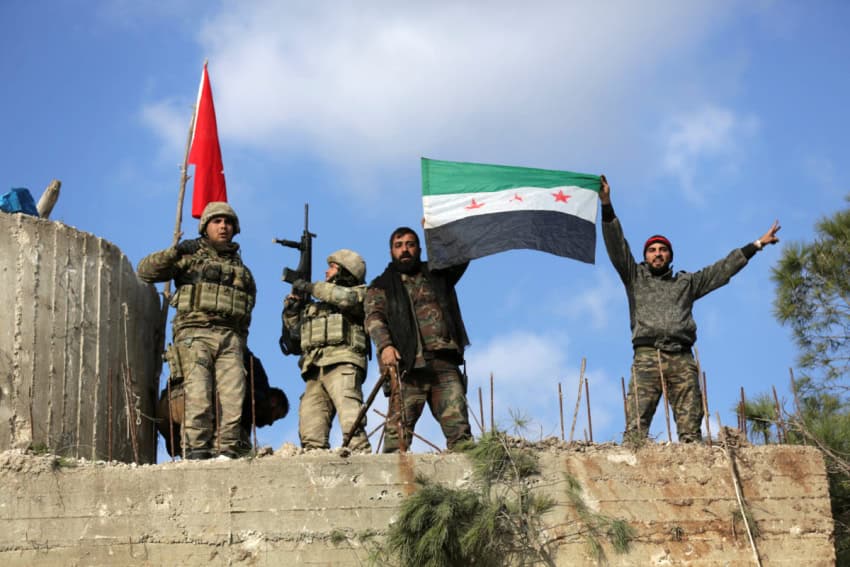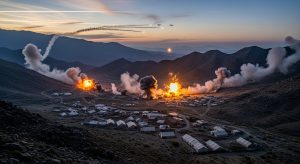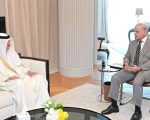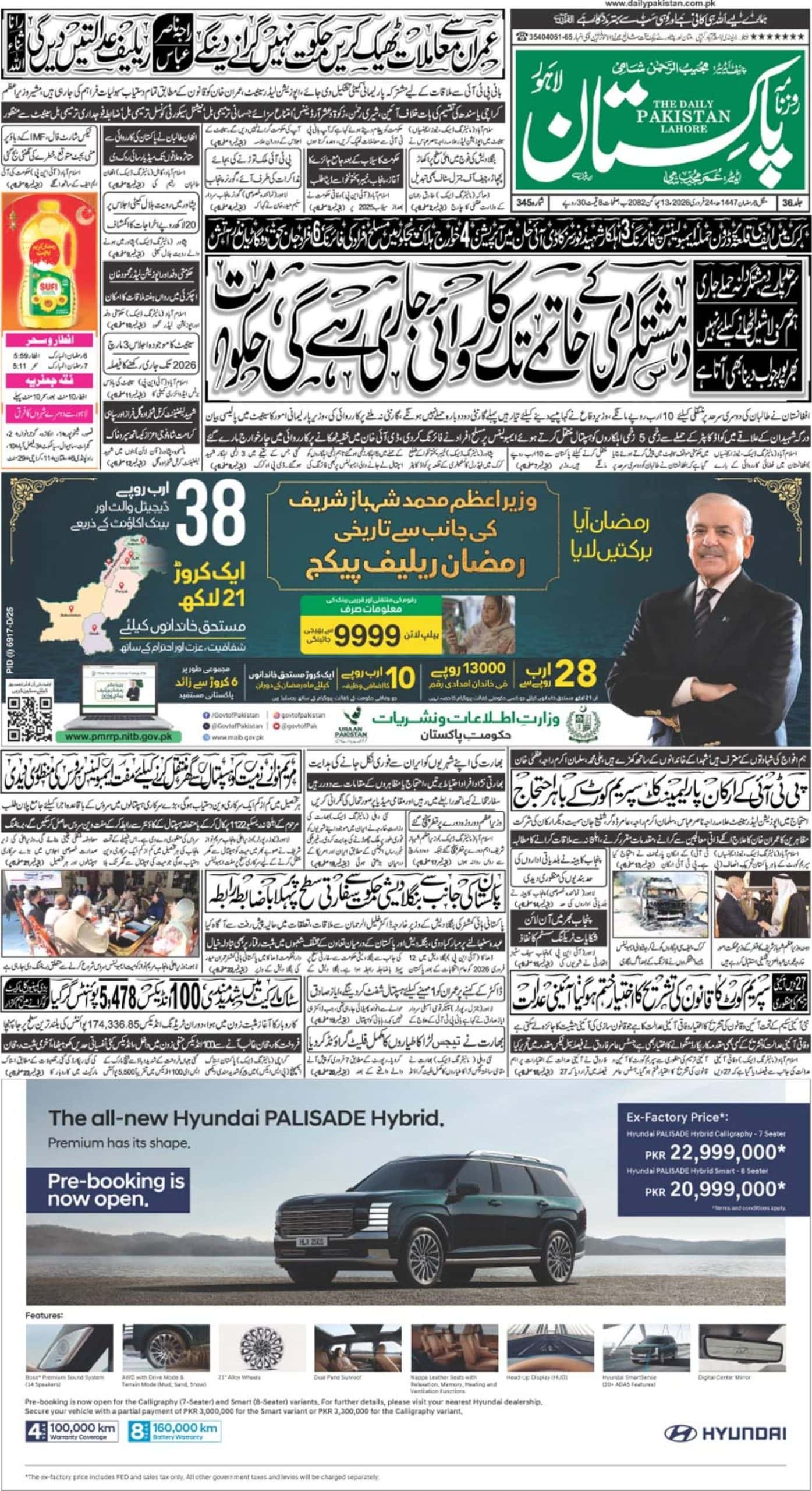The smog is thickening by the day in Syria. Russia and Iran treat it like their shared exclave. There seem no real prospects for millions of Syrians taking refuge in neighboring Turkey, Jordan, and Lebanon. Now add Washington to the mix and also Ankara’s military campaign against Kurd controlled border regions. While Assad, Iran, and Russia speak with one voice, the US and Turkey lack mutual trust. Moscow has enjoyed a free hand in managing the diplomatic exercise to dictate Syria’s future course.
“The task of combating armed gangs here in Syria . . . has been largely resolved, brilliantly resolved,” Putin had said during a surprise Syria visit on December 11. Given the weak and in many parts non-existent writ of Damascus, the victory lap was premature and naive, much like George W Bush’s statement of ‘mission accomplished’ in Iraq. Besides, what Russia calls armed gangs are not all savage men lacking political narrative.
The godforsaken Kurds of Syria
Though Moscow and Tehran have conveniently branded every opponent of Assad a terrorist, the Kurds were never viewed through the lens. Syria’s Kurds, the country’s most oppressed and disenfranchised ethnic group, emerged as a potent armed group – the Kurdish Democratic Union Party (PYD) – in 2013 gaining control over vast swathes of the border region as Assad withdrew troops to consolidate security around Damascus or Latakia provinces. The clever move created a barrier for Assad’s military against hostile Turkey, which was fighting Kurd militants in its southeastern regions.
The PYD or YPG could have faced less hospitality from Turkey had it kept a safe distance from the Kurdish militant outfit, Partiya Karken Kurdistan (PKK). The perpetually oppressed Syrian Kurds could not help but fancy a larger Kurdish state stretching from Syria to Turkey, Iraq all the way to northern Iran. After Erdogan shelved the negotiations with Ocalan in 2013, the intense operation against PKK in southeast followed. While the creation of buffer zone in Syria using enemy of the enemy saved Assad from troops’ deployment but also angered Turkey.
Trump administration’s provocative announcement of plans for creating a ‘border security force’ alarmed all stakeholders in Syria especially Turkey. On January 20, Ankara launched Operation Olive Branch with the objective of clearing Afrin and adjoining cities of the PYD. The foreign ministry warned the Kurdish militia to retreat towards Manbij or the Turkish military will come after their every stronghold along the border. Kurds have remained defiant. Washington, Moscow, and Tehran have called for an end to Ankara’s military advances. Funnily enough, the Assad regime termed it a violation of Syria’s sovereignty.
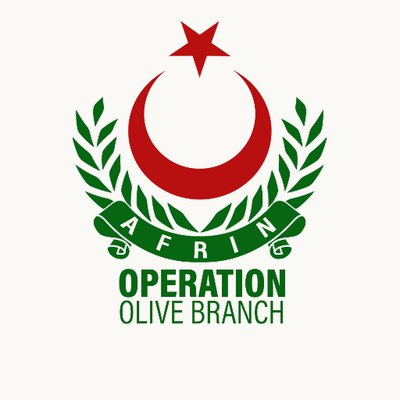
Beyond the zero-sum game
Though Russia, Iran, and Turkey have been searching for common ground on Syria, the clashing interests limit the gains. The Afrin offensive may not have been possible without Moscow’s nod yet its dynamics are bound to impact the overall security and political situation in the region. For instance, a deadly attack by Iranian militias on the outpost in Idlib province on Monday killed a Turkish soldier and injured half a dozen others. Ankara was acting in the spirit of Astana agreement, which mandated her to establish observation point in deconfliction zone of Idlib. Meanwhile, Iran has warned Turkey to withdraw from Syrian land. Ostensibly, Moscow must be mulling over convening a joint meeting with Ankara and Tehran to ease the situation. Though the UN-backed the move, it had no further role in its implementation.
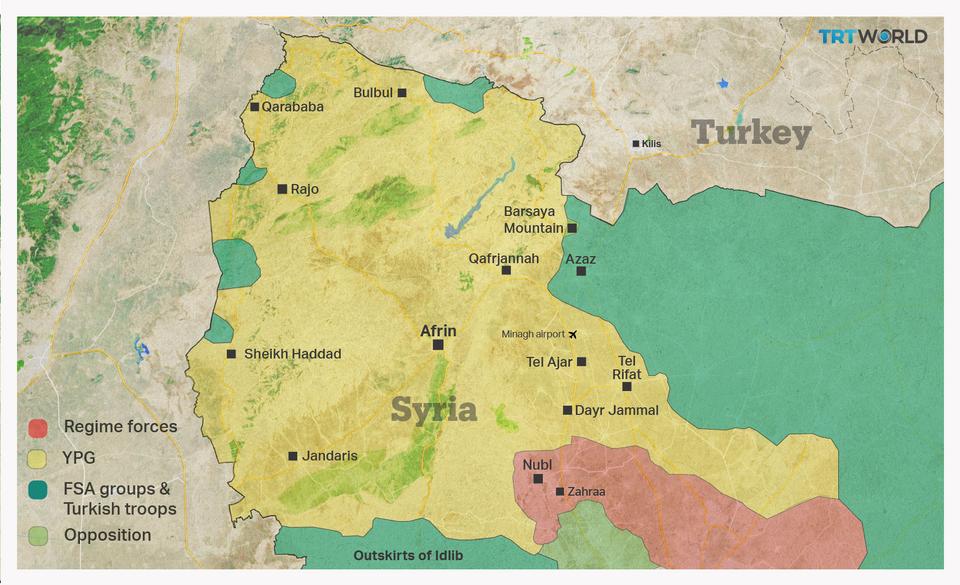
For now, Ankara prefers to clear its Syria border of Kurdish militants before it readjusts the position on Assad’s future. Tehran and Damascus are wary of Erdogan’s intentions and the consequence the Operation Olive Branch may bring. Ankara’s zero tolerance for the presence of armed Kurdish militia having deep ties with Abdullah Ocalan and his militant outfit PKK stems from unreliable policies of the US. Thanks to Obama’s shallow threats and fake red lines, Assad’s excessive use of force and resulting dissenting armed outfits have led to the death of over half a million Syrians and displacement or migration of over 12 million. Iran and Assad have no sympathy with the Sunni Kurds. To them, Erdogan’s demand of Washington to withdraw the US troops from Manbij is akin to music.
Foreign Minister Mevlut Cavusoglu told Turkish channel TGRT Haber, “The United States should understand and meet our concerns. You are cooperating with this terror organization knowingly. And this poses a threat to us.”
The US is obviously in a quandary. Had the PYD or YPG not displayed massive posters of Abdullah Ocalan and hoisted PKK flag, Washington could have defended the Kurd militant outfit. When Turkey is securing its border, Kurd militants are resorting to suicide attacks and ISIS-style executions. To stand by the non-state ally, Washington will have to revisit its position on suicide bombing. If a Kurd blowing himself up constitutes a legitimate act then why is a Palestinian termed terrorist for the same?
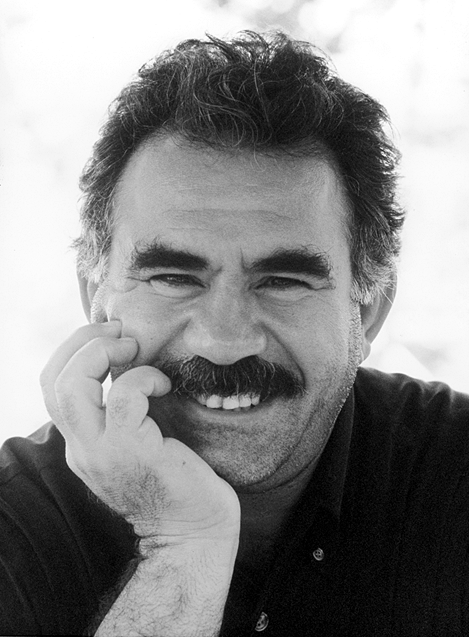
Olive branch or shrub of thorns
If the US is no longer fighting ISIS as well as Assad or Iran’s militia then why is keep troops inside Syria? Will it be justified to attack an ally which hosts a major NATO military base and also serves as a corridor for supplies for the troops? Clearly, Washington needs a pretext to maintain a presence in Syria and claim a stake in the conflict. From logistical routes to intelligence sharing and use of air cover, the US is dependent on Turkey and its NATO-run Incirlik air base. Though conflict of expectations will remain for long, the two allies will find a common ground at the cost of the YPG aspirations.
Bearing the brunt of Syria’s conflict and being a sponsor of some of the opposition factions, Turkey won’t agree to any external revisionist power maintaining a permanent military presence in its backyard. The most unwanted, of course, is Iran, that has started working to establish a large military base in Syria besides an assortment of militias. The Russia military has existed since the Cold War and is not likely to be an issue for deliberation regardless of Turkey’s concerns. Yet, Ankara maintains a working relationship with Moscow, and far from considering it an ally.
The concentration Syrian militias due to the Operation Olive Branch in Afrin seem to concern Turkey’s NATO allies. The militants from Syria’s eastern and northern regions hail from various ideologies. The western fear about the revival of ISIS on Turkey’s border and doorstep of Europe will require Ankara’s response and redressal. If the US, France, and NATO headquarter recognize Turkey’s legitimate security concerns stemming from armed Kurdish presence across the border, it may be obliged them as well. The extremist militant outfits are as much as a threat to European security as they can be for Turkey itself.
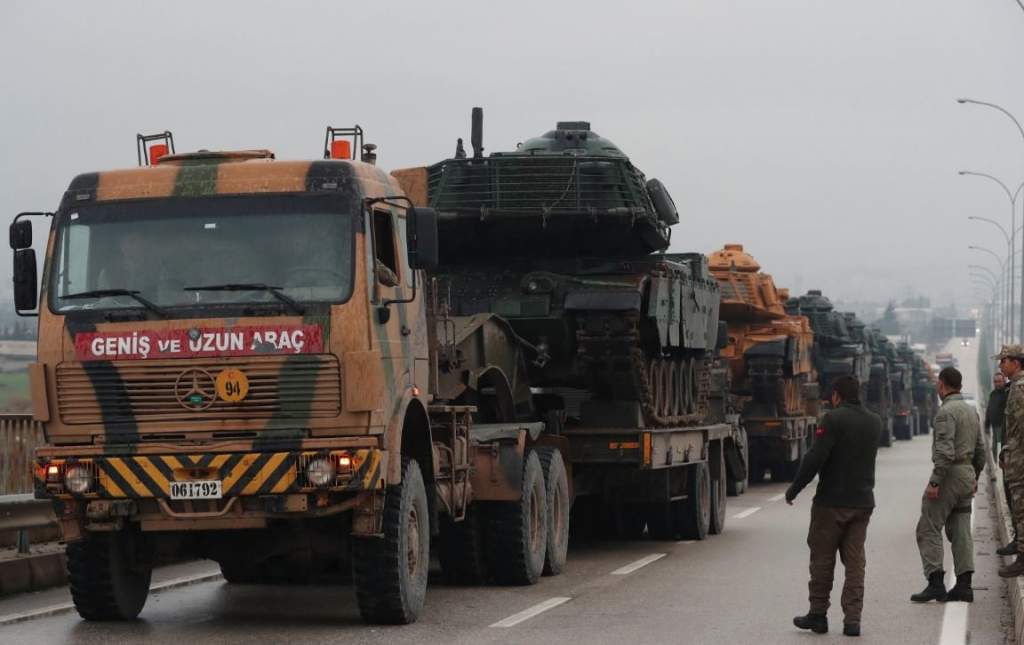
Many observers believe that after Iran consumed Syria into a sectarian conflict by backing a minority leader tooth and nail, Turkey’s military operation may lead to a bitter Arab-Kurd conflict reviving past memories.
As much as Turkey wants to remain a stakeholder in Syria’s peace process, it also has the right to secure borders. The Operation Olive Branch is not just a symbolic act but also a serious military campaign. Effective diplomacy can save the US its face in Manbij while exposing limits of cooperation to Russia and Iran. Political posturing notwithstanding, Ankara can’t afford to stretch its troops too far and too long in Syrian territory. For the stakeholders, it’s also the time to see eye to eye on crucial issues, such as the fate of armed militias.

